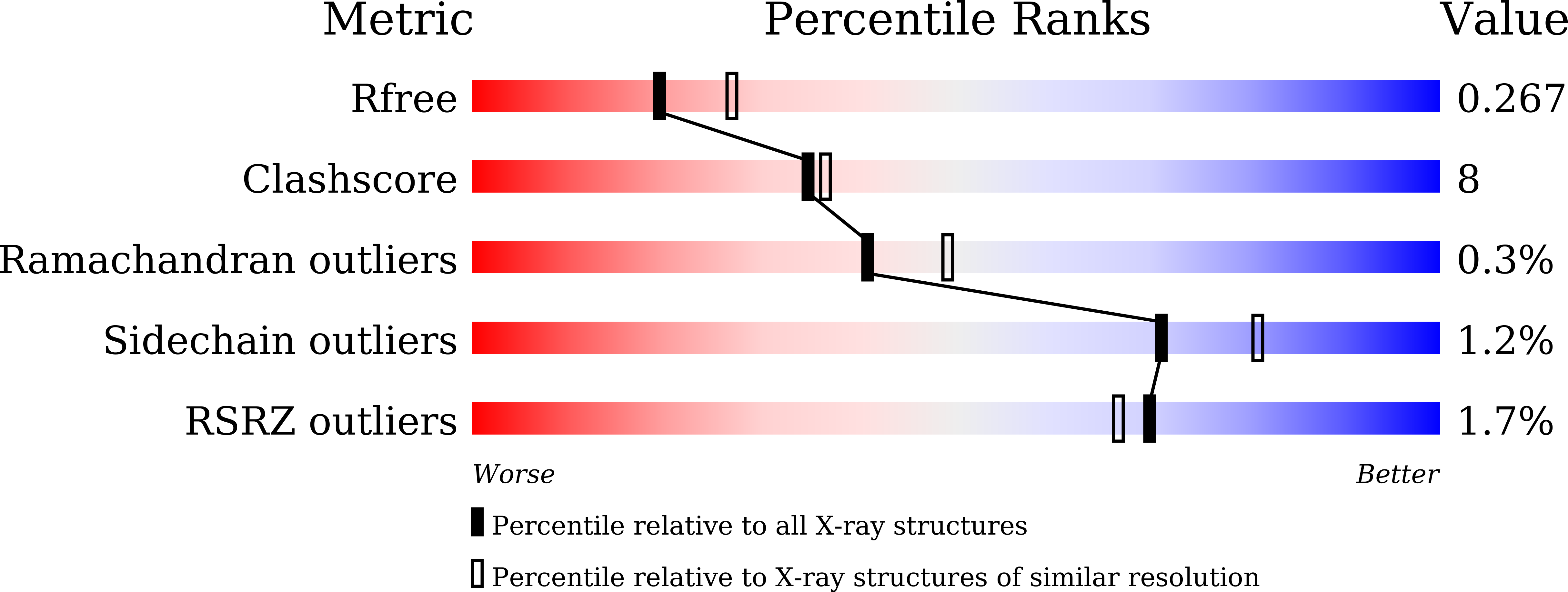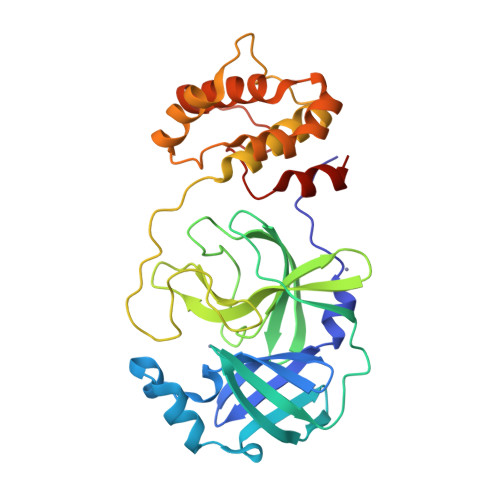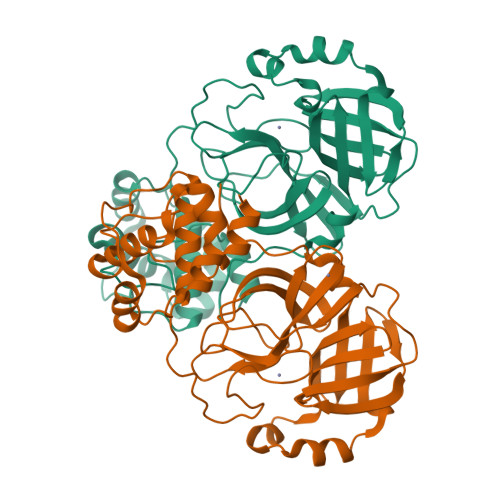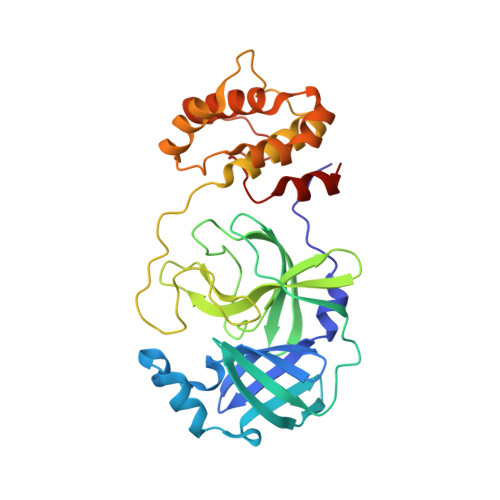Inhibition of SARS-CoV-2 replication by zinc gluconate in combination with hinokitiol.
Tao, X., Zhang, L., Du, L., Lu, K., Zhao, Z., Xie, Y., Li, X., Huang, S., Wang, P.H., Pan, J.A., Xia, W., Dai, J., Mao, Z.W.(2022) J Inorg Biochem 231: 111777-111777
- PubMed: 35255411
- DOI: https://doi.org/10.1016/j.jinorgbio.2022.111777
- Primary Citation of Related Structures:
7D64 - PubMed Abstract:
The Severe Acute Respiratory Syndrome Coronavirus 2 (SARS-CoV-2) pandemic is currently the major challenge to global public health. Two proteases, papain-like protease (PLpro) and the 3-chymotrypsin-like protease (3CLpro or Mpro), are indispensable for SARS-CoV-2 replication, making them attractive targets for antiviral therapy development. Here we screened a panel of essential metal ions using a proteolytic assay and identified that zinc gluconate, a widely-used zinc supplement, strongly inhibited the proteolytic activities of the two proteases in vitro. Biochemical and crystallographic data reveal that zinc gluconate exhibited the inhibitory function via binding to the protease catalytic site residues. We further show that treatment of zinc gluconate in combination with a small molecule ionophore hinokitiol, could lead to elevated intracellular Zn 2+ level and thereby significantly impaired the two protease activities in cellulo. Particularly, this approach could also be applied to rescue SARS-CoV-2 infected mammalian cells, indicative of potential application to combat coronavirus infections. Our studies provide the direct experimental evidence that elevated intracellular zinc concentration directly inhibits SARS-CoV-2 replication and suggest the potential benefits to use the zinc supplements for coronavirus disease 2019 (COVID-19) treatment.
Organizational Affiliation:
MOE Key Laboratory of Bioinorganic and Synthetic Chemistry, School of Chemistry, Sun Yat-Sen University, Guangzhou 510275, China.



















